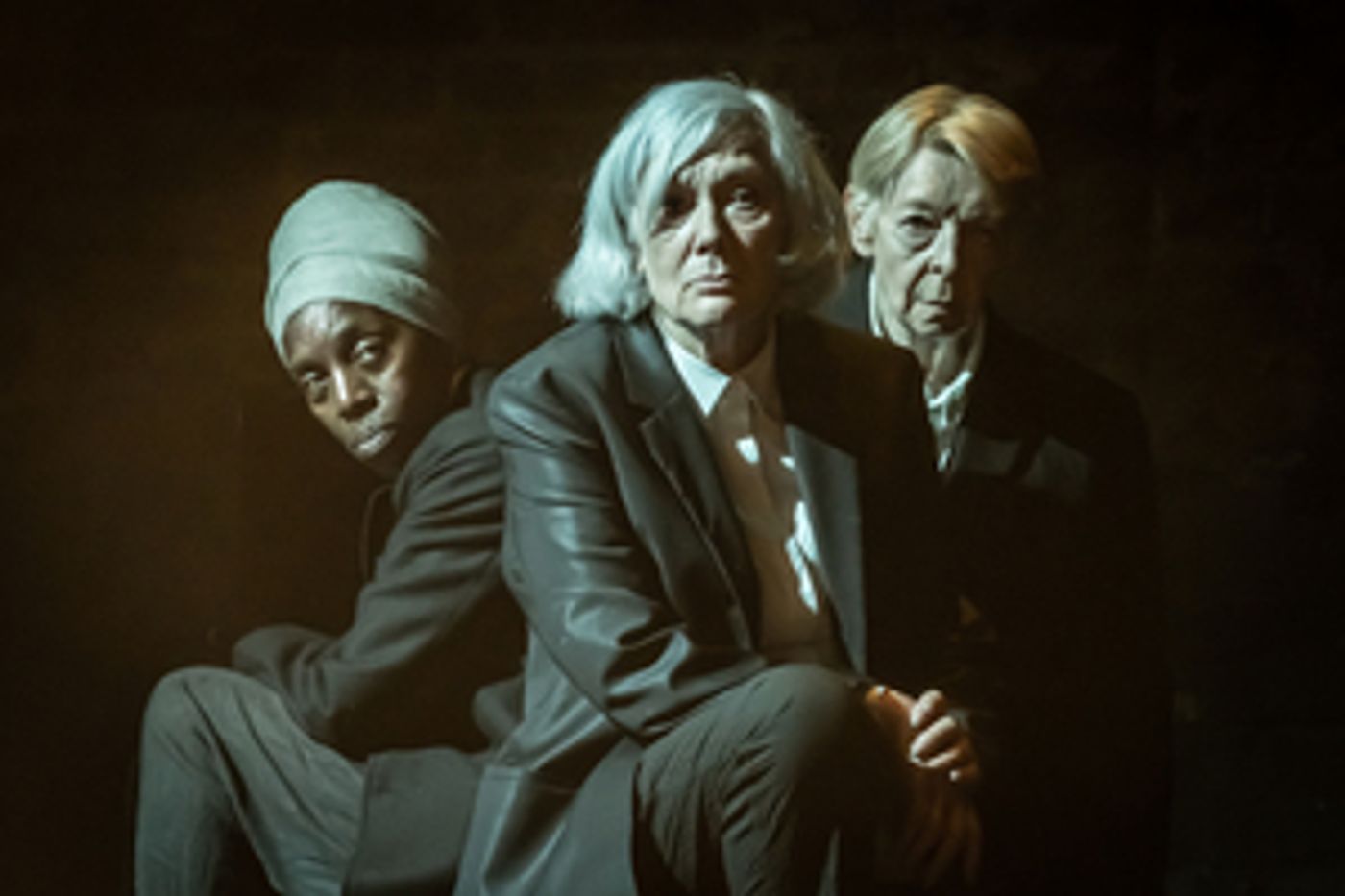Review: THE TRAGEDY OF MACBETH, Almeida Theatre
Saoirse Ronan delivers on her star billing in an otherwise somewhat incoherent Macbeth

![]() In the dark and the dank, the Wyrd Sisters, looking sharp in their tailored suits, emerge to tell the soldier Macbeth of his destiny to be king but not to bear heirs - coldly, rather as Christine Lagarde might announce an easing of IMF credit restrictions.
In the dark and the dank, the Wyrd Sisters, looking sharp in their tailored suits, emerge to tell the soldier Macbeth of his destiny to be king but not to bear heirs - coldly, rather as Christine Lagarde might announce an easing of IMF credit restrictions.
As is the case today, so was it then - a powerful man's wanting to believe something be true needed little to be willed into truth itself, especially after a stiffening of the spine from his wife. A bloody coup, a betrayal of comrades and a reckoning with forces beyond his own strength and all the witches' prophesies are made real - but Macbeth hadn't listened closely enough and paid the price.
Saoirse Ronan's London stage debut will catch the headlines and, lest it be lost in the shininess of a Hollywood star (who, to be fair, reportedly cycles to work like a true Islingtonian), she is very good indeed, much the best thing in a production that tries too hard too often. This is a cool and calculating Lady, young but ambitious, wise, but not wise enough once the stakes go higher and higher. She loves her husband, loves what he can become even more, but cannot protect him from the consequences of his impulsive acts.
This a production that so embraces the 'fair is foul' topsy-turviness of Shakespeare's imagination that it requires the men to be (more often than not) that most gendered of descriptors, hysterical. James McArdle may have the physique and voice of an old school Scottish prop forward, but the hot temperament is dialled up to 11 more or less for three hours.
Not only do we lose a lot of the lines amplified beyond the range of my ear, but it becomes impossible to believe that this was once a strategic and successful battle commander and now a king. And there are just too many men on the edge of a nervous breakdown for us to discern individual personalities and motives with any great clarity.
I was unsure as to why a beautifully played (by Aoife Burke) but intrusive cello was required to add foreboding to a play that is laden with that quality from first to last, and I'm not sure that the water that so failed to wash away litres of blood needed to be used in such quantities either, nevertheless it never got beyond the puddle stage, never mind a moat.
Not all of director Yaël Farber's decisions are as inexplicable. She conjures a lovely performance from William Gaunt as the ageing Duncan, gleefully saluting Macbeth's putting down of the rebellion while foolishly setting up his own son (a swiftly scarpering Malcolm) as a vulnerable obstacle in Macbeth's path to the throne. Akiya Henry, who also sings hauntingly, is deeply affecting as Lady Macduff, slaughtered (along with her children) as Lady Macbeth looks on in horror at what she has unleashed.
Ultimately, too many contradictions in tone and structure (we see submachine guns wielded in battles, but assassinations and duels are conducted with tiny daggers) wedge themselves between words we struggle to make out amidst the cries of battle and in the fog of war. But maybe those lines could be trusted a little more - we know Macbeth is losing his mind, so the wailing and gnashing of teeth should supplement rather than dominate the performance.
But those who will come to see La Ronan sprinkle some Tinseltown glamour into the gloomy Autumn nights of North London will not be disappointed - and neither will those who come to see what one of the screen's lauded female stars makes of one of the stage's greatest female roles.
The Tragedy of Macbeth is at the Almeida Theatre until 27 November and streaming live 27-30 October
Photo Marc Brenner
Reader Reviews
Videos

